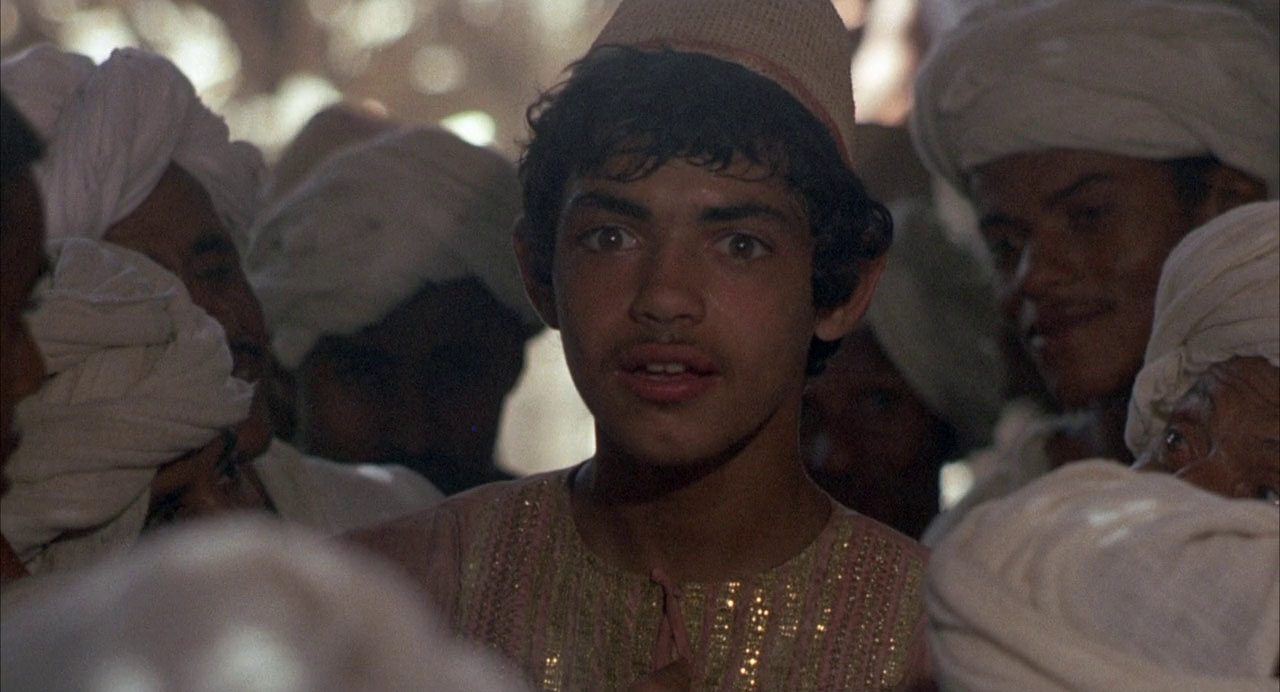On Oscars night I thought we should watch something that never* won an award, and so, Conan.
Painted-up horseback killers arrive and destroy young Conan’s town, kill his dad first, then James Earl Jones (with beautiful long hair and named Salsa Doom) beheads Conan’s mom and takes all the town’s kids to be millwheel slaves. Our kid grows into Arnold whilst pushing the millwheel, then gets thrown into gladiator battle where he caves in the other guy’s head, leading to a montage of him killing a lot of guys and “realizing his sense of worth,” haha. After the one-on-one fights in Universal Soldier 6, the chaotic action mishmash of this was bound to disappoint. Impressed, his slavemasters send him to fighting school but some redbeard randomly frees him then he immediately finds a kickass Earth God sword.
The Empty Man, Earth God:

Arnold doesn’t know how to socialize properly, so he has sex with a sorceress while she’s in the middle of reciting his prophecy, then hurls her into the fireplace. He meets Gerry Lopez (thief, archer, and surfer in Milius’s Big Wednesday) and they run around Spain to the lovely adventure music of Basil Poledouris (later a Verhoeven accomplice). Soon after he punches a camel, they meet a cute lady thief (Sandahl Bergman of Hell Comes to Frogtown) and together rob a snake-cult tower and behead the snake god within.

King Max von Sydow congratulates them and sends them on a mission to unkidnap his daughter from the snake cult. Conan ditches the others and runs the rescue mission solo for some reason, asking directions from some hippies, and meeting wizard Mako (The Bird People in China) who lends him a camel, which he learns should be ridden, not punched. Arriving in snaketown, Arnold seduces some guy to steal his cult robes, but he’s not very sneaky and Salsa Doom’s men crucify him on the tree of woe. Really shouldn’t have come alone.

His buddies arrive belatedly and Mako kwaidans him back to life. They sneak in and massacre the palace guards, getting green soup everywhere, while Salsa Doom transforms into a snake and crawls off. The cute girl thief dies of snake wounds before Arnold can find a fireplace to hurl her into. Arnold heals up and goes back to slash his way through more guys, with help from buddies Gerry and Mako and the ghost of his dead girlfriend, beheads Salsa Jones and all the cultists go home. Ends slowly, with a sequel setup, but instead of Conan the Destroyer (a Richard Fleischer/Jack Cardiff joint, shorter, with Grace Jones) I think I’m supposed to watch the Lucio Fulci ripoff Conquest.

*This lost Saturn awards to Star Trek II, Tron, E.T., The Dark Crystal, and Poltergeist, a pretty good lot, but in 2001 it won a DVD commentary award. I listened to a couple minutes of commentary around the camel-punching scene, and nah, I would’ve gone with Charlie’s Angels.
Guess this was technically a rewatch since I remember catching it on cable at Brad’s house in 1983… now that it’s fresh in my mind, bring on the new Mandico version. Milius had recently cowritten Apocalypse Now and 1941, I guess he was into warfare in every era. Producer Dino de Laurentiis also made Halloween III and Amityville II this year, and Edward Pressman and Oliver Stone had just made The Hand.
































